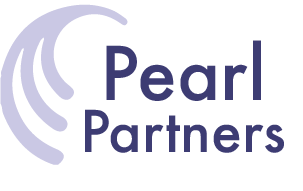Insights are derived. They are not observed, nor are they instant. They take time.
Regardless of the end goals, the most important part of a project is the time in-between the end of the research and before developing solutions. This is probably true for any project, but here I am talking about projects that include some significant consumer research.
It is also the part of the project that many people want to cut short. Why? Because on paper it looks like nothing is happening. Throughout the rest of the process you are doing something. You're doing research, or you're making prototypes, or you're developing a presentation. Thinking is discounted because you're not actually doing anything that could result in the end deliverable.
And yet, it's quite actually the opposite. The thinking time is very active, especially when the end goal is to develop something completely new and different. In these cases, the consumer cannot give the answer directly. The basis upon which a new offering will be developed is not top of mind enough to be articulated, and so it must be derived. This process involves dissecting what was learned, analyzing it, triangulating and reconciling it with other information, developing new theories, and making models and scenarios to translate these theories into criteria for a new offering. It's a lot of hard work, and while very little of it may end up as part of the final deliverable, it is all a valuable part of how we get to the final deliverable.
Please don't cut the thinking time short. 99.9% of the time, the deep insight is not observed during the interview. Prototypes of solutions shouldn't be started the next day. This is a counter to the way most organizations work, and as such, is uncomfortable for many people. If it is uncomfortable for you, please resist the temptation to cut it short. It won't help. If someone offers to do it for you without allowing for some significant time devoted to actively thinking, don't trust them. It won't work.

Ellen,
This is an excellent post! Insights take time, evolve and develop, and just need some space to roll around in your head before you get it just right. Sort of like innovation itself – there is often no eureka moment. They are hard work!
They are the most crucial thing to crack in a project and I agree that often after a research debrief clients say right…what’s next? When does the next stage begin. It breaks my heart when some clients need an insight to fill in the blank on a brand template, and miss the value of what cracking the insight delivers.
Great example Kelly. It is very frustrating when that happens. That’s why it’s so important for us to try to define the process in terms clients can understand. Then we will have a comfortable foundation to support the parts that are just too uncomfortable for them. Nice ideal, huh?
I absolutely agree with this post. Thinking is an under-valued activity in most businesses and unfortunately in order to be valued it needs to be made visible. Things like mind-mapping and other idea and needs analysis tools such as Jobs-2-Be Done may be useful in this regard as at least there is something to show management! http://brendandunphy.blogspot.com/2008/08/jobs-to-be-done-in-practice.html
You’ve made me see mind-mapping etc, tools in a different light! I hadn’t thought of them as a way to visibly show that something is happening. I usually think that people try to use them instead of actually doing the work themselves. I love the idea of using them as more of an aid than a substitution.